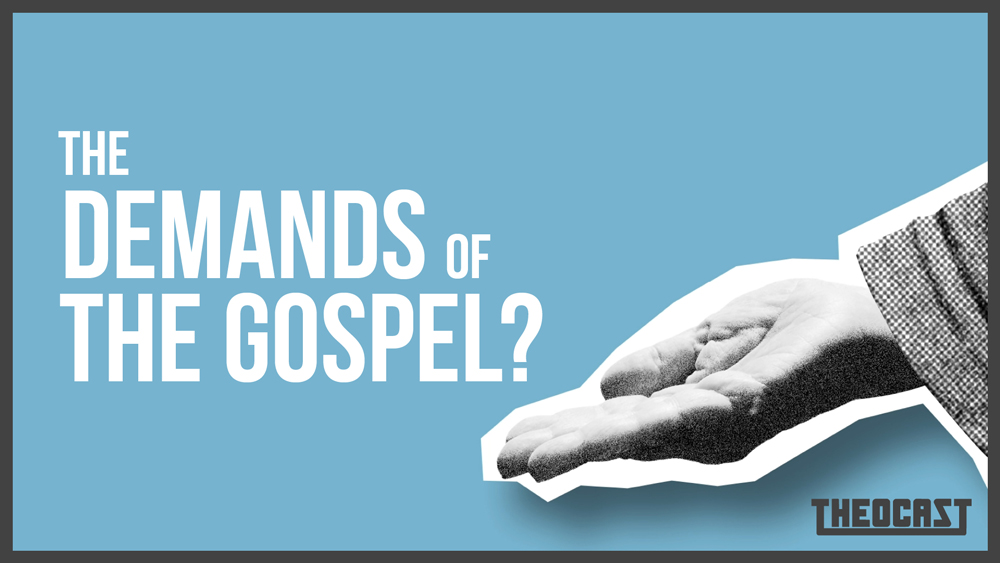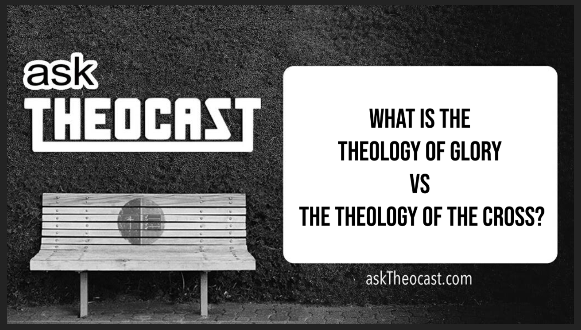
The Demands of the Gospel?
People like to talk about the “demands of the gospel.” But does the gospel make demands of us? Must we forsake sin in order to come to Christ? Do we need to make Jesus Lord of our lives?



What Is Covenant Theology? Answered by Justin Perdue
Hi, this is Justin, and I am answering the question, “What is covenant theology?” Just a quick disclaimer, before I even get going – this is a massive topic, and so what I’m about to do is a 30,000-foot fly over in just a few minutes. I hope it’s helpful to you.
Covenant theology is much more than simply believing that there are covenants in the Bible or that God works through them somehow. Covenant theology is a framework that’s revealed in scripture through which we understand and interpret the entire Bible, and it’s a framework that God works particularly and uniquely through in order to accomplish salvation. The three fundamental elements of covenant theology are the covenant of redemption, the covenant of works, and the covenant of grace.
The covenant of redemption is made in eternity past, before the world began, amongst the persons of the Godhead. They covenant together to save a people from the mass of fallen humanity, and in particular, the Father and the Son covenant together to save the elect through the work of God, the Son, who would take on flesh to accomplish that redemption.
The covenant of works is a conditional covenant that God makes with man, and as the name implies, it is conditioned upon what we do. If man keeps the conditions of the covenant, if he obeys them perfectly and doesn’t violate them at all, then he can stand on his own merit before God, and is in right relationship with him. God makes this covenant with Adam in the garden of Eden. Adam is given things that he is to do, and he has given a prohibition that he is not to eat the fruit of the tree of the knowledge of good and evil, and we know that Adam transgressed the conditions of that covenant, resulting in punishment and judgment, namely, he plunged himself and all of his posterity into ruin.
It’s important to note that the covenant of works is revealed in other places in scripture than just in the garden of Eden. For example, at Theocast, we understand that the mosaic law, in the mosaic covenant, is a reissuing of the covenant of works, not formally, but with respect to its requirements, and of course there’s the gracious provision of the sacrificial system revealed in the mosaic covenant as well. The covenant of works, though, represents what God requires of us in order to stand before him and be in right relationship to him, and it is a conditional covenant.
The covenant of grace, on the other hand, is an unconditional covenant. It’s an unconditional promise that God makes to his people that is not based on anything that they do, but it’s based completely upon what the messiah does for them, and it is to be received by faith grounded in God’s grace. The covenant of grace is promised in Genesis chapter three in verse 15, where God says there’s a redeemer who will come to crush the head of the serpent, and it is revealed more and more throughout the Old Testament, and we finally see the covenant of grace established and accomplished in Christ in the new covenant.
A simple way, I think to understand covenant theology is this: Jesus Christ fulfills the covenant of works in the covenant of grace in order to accomplish the covenant of redemption. So Jesus fulfills all of God’s conditions and requirements for righteousness and forgiveness and the like, it is counted to his people by grace, through faith, that’s the covenant of grace, in order that they might be saved, that’s the covenant of redemption.
Something for you to know is that we plan to produce more content on covenant theology in the coming weeks and months. Some of that will be audio content, and then some of that, we hope, will be written content, perhaps even a primer on the subject. So hopefully this brief answer has primed the pump for you, and I hope that even these few minutes have been helpful to you.

People like to talk about the “demands of the gospel.” But does the gospel make demands of us? Must we forsake sin in order to come to Christ? Do we need to make Jesus Lord of our lives?

Many of us have spent our Christian lives chasing after experiences. We live in pursuit of spiritual highs and that “first-time feeling.” There is something different and better. Jon and Justin talk about what that is.

What is the purpose of your sanctification? Who is it for? (Hint: It’s not for you.) We survey a number of passages from the New Testament to demonstrate the point of our growth in Christ.
Deepen your understanding of Reformed theology and strengthen your faith with our weekly book recommendations.